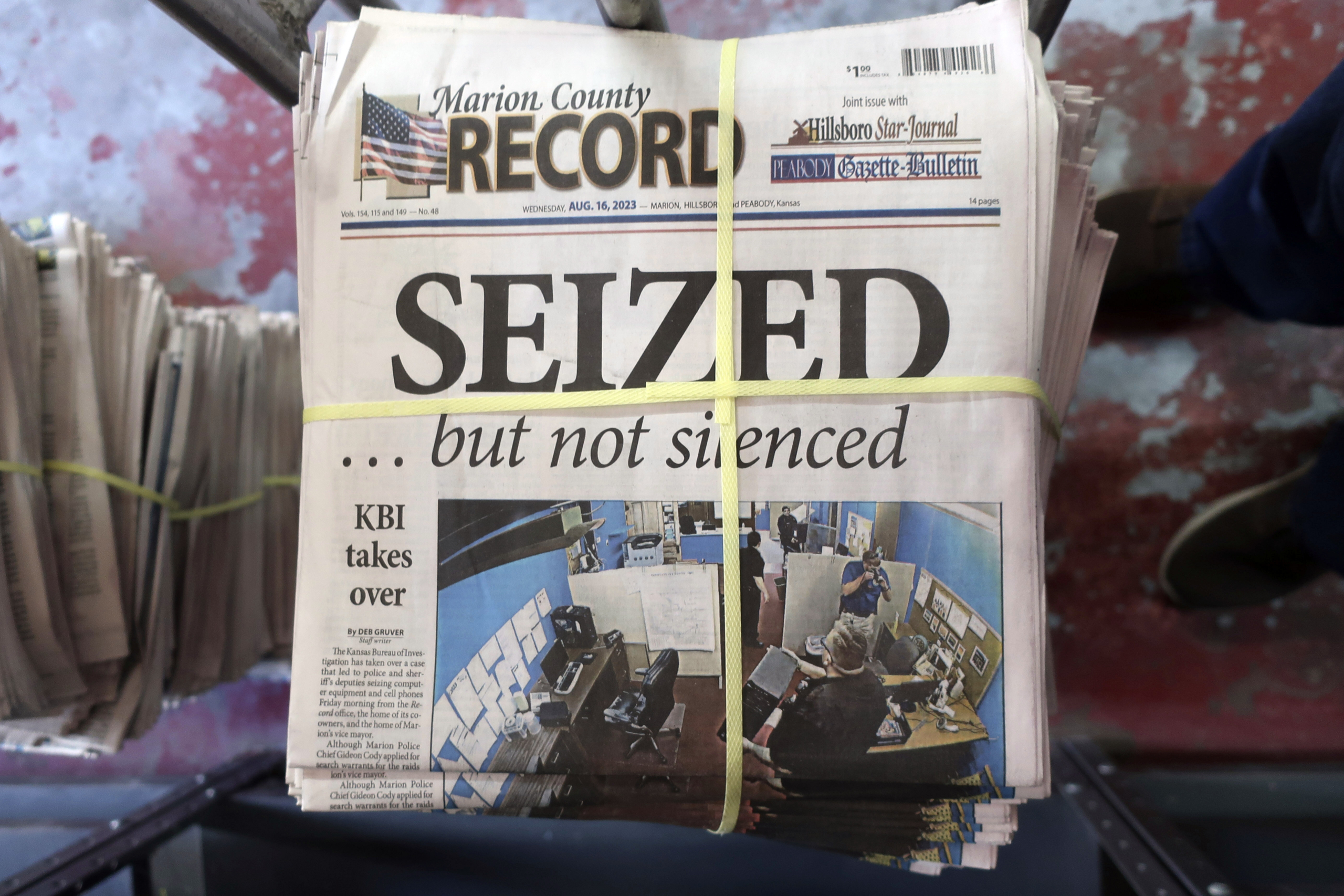Sign up for the daily CJR newsletter.
Over a month after it happened, the police raid of Kansas’s Marion County Record looks increasingly like a clear case of official retaliation against a local newspaper.
Marion police chief Gideon Cody was allegedly upset that the Record had investigated him. When a local restaurateur accused its journalists of breaking the law, he found a judge willing to approve a search warrant based on a false affidavit, and that was that.
But another narrative emerged in the raid’s aftermath: that the Record was asking for trouble through its “aggressive” approach to small-town journalism. “The real story of how it happened,” read a Washington Post subheading, “is rooted in the roiling tensions and complex history of a few key community members.” The New York Times added that the raid had “uncorked a debate” over the question of “What is a newspaper’s role, anyway?” and whether a local paper has a “duty…to be a booster for the places it covers.”
If that debate is actually happening, it’s not because newspapers like the Record are crossing the line by agitating small-town officials. It’s because those officials have grown unaccustomed to healthy scrutiny. And perhaps some of their constituents have forgotten the benefits of a robust Fourth Estate.
In 2019, the United States had 6,700 newspapers, compared with 9,000 in 2004. That doesn’t even account for more recent closures, including those forced by COVID. Newsrooms are shutting down at a rate of two a week. And that also doesn’t include the countless papers that, while still publishing, are shells of their former selves and no longer equipped to serve as watchdogs against abuses of power.
The prevalence of “news deserts” has apparently led some to think it’s normal for neighborhood news outlets to function as lapdogs rather than watchdogs. A Marion grocery store owner told the Times that the local paper “should of course be positive about everything that is going on in Marion, and not stir things up and look at the negative side of things.”
Fluff pieces may be good for business (at least in the short term), but we wouldn’t need a First Amendment if the press’s role were to applaud the status quo.
Cody agreed with the store owner. He told the Post, “If you live in Marion, you understand. If you don’t live in Marion, you don’t understand.” (Cody has lived in Marion for five months.) By the time that comment was published, the Kansas City Star had revealed that Cody resigned from his prior position in Kansas City, Missouri, earlier this year to avoid a demotion. The Record then reported on the laundry list of complaints against Cody that it received—but did not publish—at the time he was hired. If anything, it seems that the Record should have been more aggressive in revealing the truth about Cody before Marion hired him.
The ordeal also belies the notion that small towns don’t need journalism because “everyone knows each other” and holds their friends accountable. Marion County has almost twelve thousand people. Small-town politicians and elites may all know each other, but there are still plenty of people outside the bubble. The press’s job is to bring them in. And even towns far smaller than Marion—where everyone actually might know each other—are by no means always exemplars of good government.
The truth is that the powerful complain about aggressive media coverage everywhere, not just in small towns. Find me a government of any size that doesn’t think the press is too hard on it. The difference is that small-town officials often have far greater ability to meaningfully retaliate against negative coverage rather than just complaining about it. That can mean filing frivolous SLAPP suits or pulling contracts for legal notices.
These efforts are especially likely to succeed in small towns because the more desperate news outlets become for money, the more susceptible they become to intimidation and self-censorship.
Fortunately, the Record was not intimidated and Cody’s raid backfired. The national media has shined a spotlight on his antics, and editorial boards and locals alike want him fired. He’s also being sued for allegedly snatching the phone of a Record journalist who had nothing to do with the news tip he cited to obtain the warrant (but who had investigated him).
And, better late than never, the Record has exposed his background so the people of Marion can hold their elected officials accountable for hiring him in the first place—and make sure it doesn’t happen again. That’s well worth “stirring things up.”
Has America ever needed a media defender more than now? Help us by joining CJR today.







